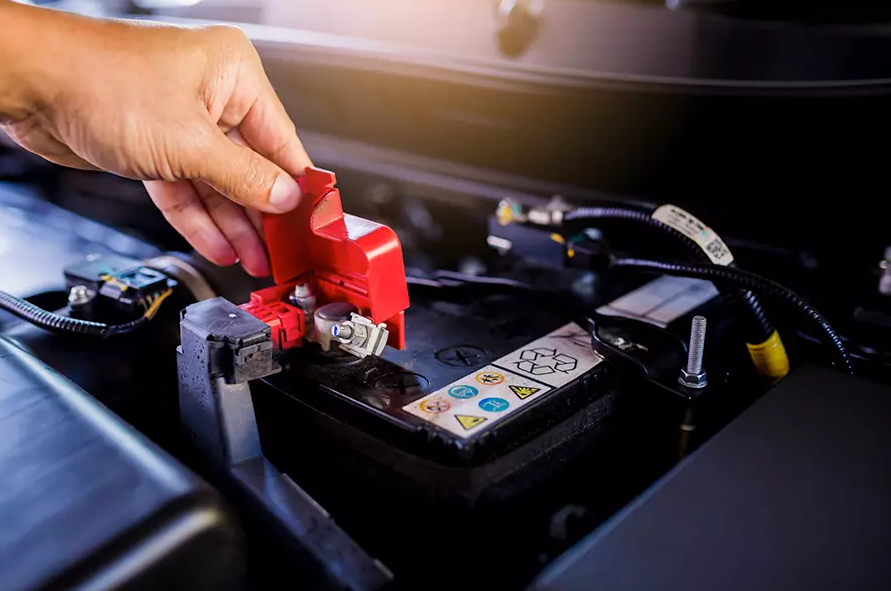Instrumentation of Lithium Battery: Enhancing Performance and Safety
소개:
Lithium-ion batteries have revolutionized the portable electronic industry and are becoming increasingly prevalent in various applications, from electric vehicles to renewable energy storage. However, ensuring the performance and safety of lithium batteries is of utmost importance, as their failure can result in catastrophic consequences. This article aims to explore the significance of instrumentation in lithium batteries and how it enhances their performance and safety.
1. Monitoring and Control Systems:
Instrumentation plays a crucial role in monitoring and controlling various parameters of lithium batteries, such as voltage, current, temperature, and state of charge. Real-time monitoring allows for early detection of any abnormalities or deviations from normal operating conditions, ensuring timely intervention to prevent potential risks. Control systems can adjust charging and discharging rates based on the battery\’s condition, optimizing its performance and extending its lifespan.
2. Thermal Management:
One of the major challenges with lithium batteries is heat generation during charging and discharging processes. Instrumentation enables the implementation of effective thermal management systems to regulate temperature within safe limits. Temperature sensors and thermal imaging techniques help detect hotspots and prevent thermal runaway, which could lead to battery failure or even fire. By actively managing the battery\’s thermal behavior, its overall performance and safety can be significantly improved.
3. Cell Balancing:
Lithium batteries consist of multiple cells connected in series or parallel. Cell balancing ensures that all cells within the battery pack are equally charged or discharged, preventing capacity imbalance and improving overall performance. Instrumentation techniques, such as voltage and impedance measurements, enable accurate monitoring of individual cell voltages and states of charge. Active cell balancing systems can redistribute energy between cells, preventing overcharging or over-discharging of any particular cell.
4. Failure Prediction and Diagnosis:
Instrumentation allows for the continuous monitoring of various battery parameters to identify early signs of potential failure. By analyzing data collected from the battery\’s internal sensors, it becomes possible to detect anomalies associated with capacity degradation, internal short circuits, or electrolyte leakage. Early detection of these issues enables proactive maintenance or replacement of faulty batteries, reducing the risk of sudden failures.

5. State-of-Health Assessment:
Instrumentation techniques, such as impedance spectroscopy, enable accurate assessment of a battery\’s state of health (SoH). SoH estimation involves analyzing internal resistance, capacity fade, and other relevant factors to determine the overall condition of the battery. By regularly evaluating the battery\’s SoH, it becomes possible to predict its remaining useful life and plan for replacements or repairs accordingly, improving overall safety and performance.
결론:
Instrumentation is essential for enhancing the performance and safety of lithium batteries. By continuously monitoring and controlling various parameters, such as voltage, temperature, and state of charge, potential risks can be detected early, and appropriate actions can be taken. Thermal management, cell balancing, failure prediction, and SoH assessment are all critical aspects that can be addressed through instrumentation. As lithium battery technology continues to evolve, further advancements in instrumentation will play a vital role in ensuring their safe and efficient operation.
-
 오늘날 빠르게 변화하는 디지털 세상에서는 생산성이 핵심입니다. 비즈니스 전문가부터 학생까지 빠르고 정확하게 작업을 완료하려면 안정적이고 효율적인 PC 마우스를 갖는 것이 필수적입니다. 하지만 끊임없이 새 배터리가 필요한 마우스보다 더 답답한 것은 없습니다. 이것이 바로 PC 마우스 리튬 배터리가 작동하는 곳입니다. 이는 다음과 같이 생산성을 향상시키는 오래 지속되는 전원 솔루션입니다.더 읽어보세요
오늘날 빠르게 변화하는 디지털 세상에서는 생산성이 핵심입니다. 비즈니스 전문가부터 학생까지 빠르고 정확하게 작업을 완료하려면 안정적이고 효율적인 PC 마우스를 갖는 것이 필수적입니다. 하지만 끊임없이 새 배터리가 필요한 마우스보다 더 답답한 것은 없습니다. 이것이 바로 PC 마우스 리튬 배터리가 작동하는 곳입니다. 이는 다음과 같이 생산성을 향상시키는 오래 지속되는 전원 솔루션입니다.더 읽어보세요 -
 Camping is a cherished pastime for outdoor enthusiasts. It allows us to disconnect from the chaos of everyday life and reconnect with nature. However, one of the challenges of camping is ensuring a reliable power source for our electronic devices and appliances. This is where the lithium camper battery comes into play - the ultimate power solution for campers. ...더 읽어보세요
Camping is a cherished pastime for outdoor enthusiasts. It allows us to disconnect from the chaos of everyday life and reconnect with nature. However, one of the challenges of camping is ensuring a reliable power source for our electronic devices and appliances. This is where the lithium camper battery comes into play - the ultimate power solution for campers. ...더 읽어보세요 -
 As a vehicle owner, one of the most frustrating issues you may encounter is a dead starter battery. Not only can this prevent you from starting your car, but it can also be a costly problem to fix. Fortunately, there are several steps you can take to prevent your starter battery from discharging. In this article, we\'ll discuss some of...더 읽어보세요
As a vehicle owner, one of the most frustrating issues you may encounter is a dead starter battery. Not only can this prevent you from starting your car, but it can also be a costly problem to fix. Fortunately, there are several steps you can take to prevent your starter battery from discharging. In this article, we\'ll discuss some of...더 읽어보세요 -
 An emergency starter battery is an essential piece of equipment for anyone who wants to be prepared for unexpected power outages. These devices are designed to provide a reliable source of power in times of need, and can be a lifesaving solution for those who rely on electricity to power their homes and businesses. In this article, we will take...더 읽어보세요
An emergency starter battery is an essential piece of equipment for anyone who wants to be prepared for unexpected power outages. These devices are designed to provide a reliable source of power in times of need, and can be a lifesaving solution for those who rely on electricity to power their homes and businesses. In this article, we will take...더 읽어보세요 -
 When it comes to owning a car, one of the most important things you need to consider is the battery. This is because it is responsible for starting the engine and powering all the electrical systems in your vehicle. Therefore, it is essential to choose a reliable car starter battery that can meet your needs. In this article, we...더 읽어보세요
When it comes to owning a car, one of the most important things you need to consider is the battery. This is because it is responsible for starting the engine and powering all the electrical systems in your vehicle. Therefore, it is essential to choose a reliable car starter battery that can meet your needs. In this article, we...더 읽어보세요 -
 Lithium iron phosphate (LiFePO4) batteries are a relatively new rechargeable battery technology that has garnered interest in recent years owing to their improved performance capabilities, longer lifespan, and lower environmental impact than traditional lithium-ion batteries. Despite their rising popularity, the technology is not without its drawbacks. In this article, we will explore the pros and cons of Lithium Iron Phosphate...더 읽어보세요
Lithium iron phosphate (LiFePO4) batteries are a relatively new rechargeable battery technology that has garnered interest in recent years owing to their improved performance capabilities, longer lifespan, and lower environmental impact than traditional lithium-ion batteries. Despite their rising popularity, the technology is not without its drawbacks. In this article, we will explore the pros and cons of Lithium Iron Phosphate...더 읽어보세요 -
 A reliable car starter battery is essential for your vehicle performance. It provides the power necessary to start your engine, and it also supplies electricity to the electrical components in your car. Without a reliable car starter battery, your vehicle may not start, and you may experience electrical problems. There are several factors to consider when choosing a car...더 읽어보세요
A reliable car starter battery is essential for your vehicle performance. It provides the power necessary to start your engine, and it also supplies electricity to the electrical components in your car. Without a reliable car starter battery, your vehicle may not start, and you may experience electrical problems. There are several factors to consider when choosing a car...더 읽어보세요

